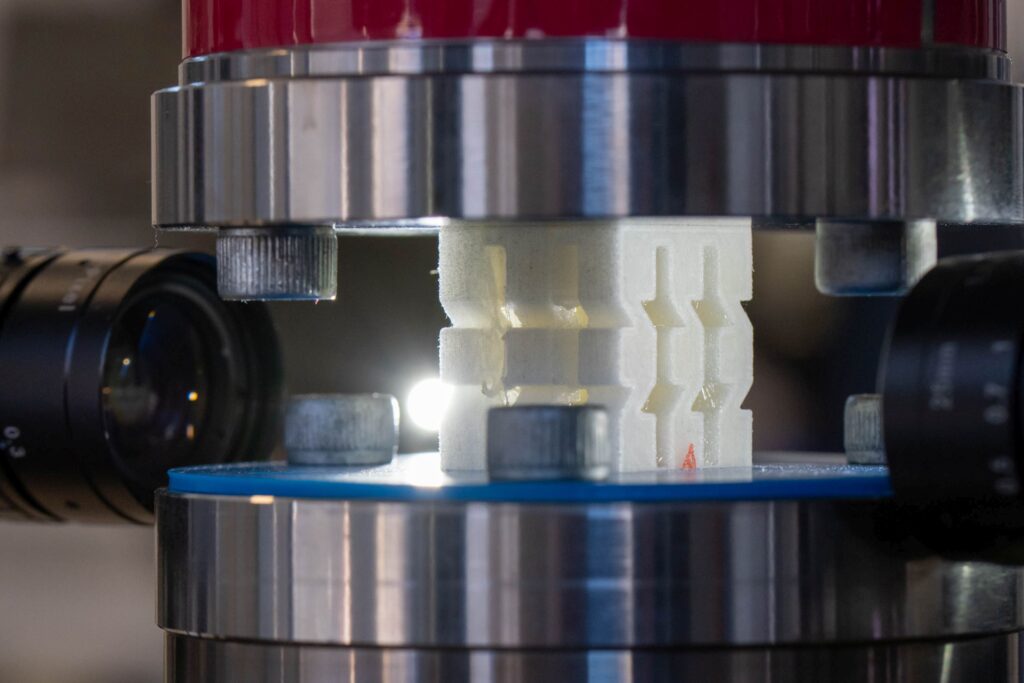A prestigious community – TESCAN Collaboration Network (TCN), is helping to foster networking and scientific progression. One example of a successful research collaboration within the TESCAN Collaboration Network involved TESCAN FIB-SEM customer, Institute of Physics of Materials (IPM), Czech Republic, and micro-CT customer at TU Graz, Austria – Institute of Solid State Physics.
The subject was to measure 3D-printed structures prepared on two different 3D printers after slight loading. The goal was to see how the architecture of the samples changed and if the type of printer also had an effect on the mechanical properties. The structure was developed and patented by Polymer Competence Center Leoben (PCCL).

According to IPM’s Ing. Ivo Kuběna, Ph.D., Head of Electron Microscopy and Researcher – Low Cycle Fatigue Group, “As a member of the TESCAN Collaboration Network, I’m thrilled to have the opportunity to participate in software development and have access to cutting-edge equipment that we may not have otherwise. Collaborating with experienced users to interpret data is invaluable and has already helped us achieve great strides in our research.”
Kuběna adds, “This network has allowed us to work closely together on larger projects, find suitable partners, participate in software testing, attend conferences, and showcase our achievements. We’re grateful for the opportunity to be a part of this prestigious club and excited to see where this collaboration takes us next!”
Dr. Eduardo Machado-Charry, TU Graz Senior Scientist at Graz University of Technology, added, “Graz micro-CT is a relatively new X-ray micro-computed tomography infrastructure funded by the Austrian research promotion agency (FFG). It is a user facility for a consortium of several institutes and universities in Graz. After acquiring the two last-generation TESCAN micro-CT solutions, we joined the TESCAN Cooperation Network. We did this out of knowing that today no research group can possibly have all of the necessary instruments for materials research in one lab. Therefore, it can help research a lot when you are part of a network that brings different expertise and infrastructure together.”
Machado-Charry adds, “In our case, we were happy to make our first micro-CT measurements through the involvement of this network and the group of Prof. Kuběna from Brno. We helped him to evaluate the microstructure of a 3D-printed cube made of a special polymer. The added value of this great initiative is meeting researchers from other fields of expertise and other countries. We are looking forward to more exciting collaborations!”

